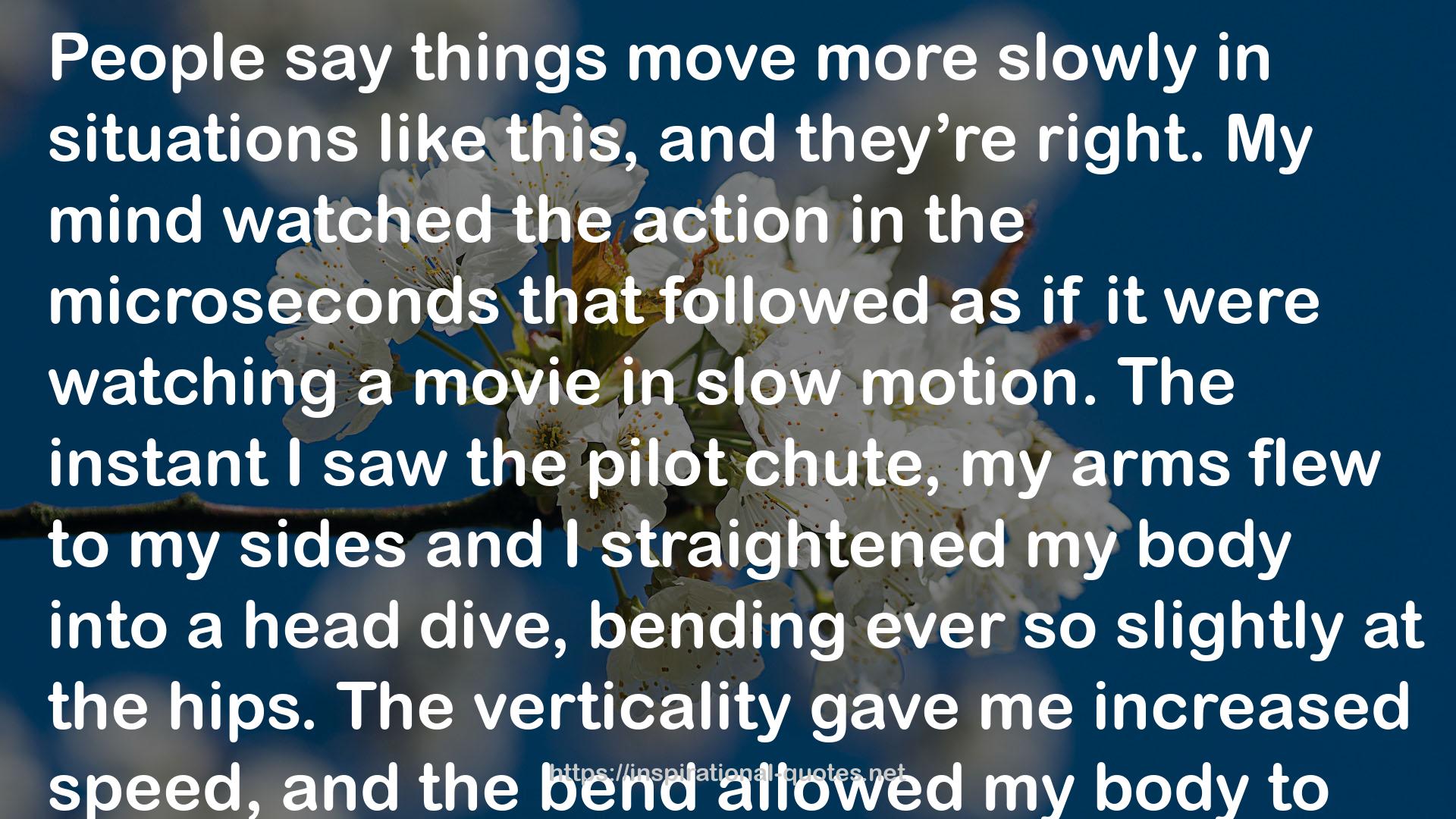" People say things move more slowly in situations like this, and they’re right. My mind watched the action in the microseconds that followed as if it were watching a movie in slow motion. The instant I saw the pilot chute, my arms flew to my sides and I straightened my body into a head dive, bending ever so slightly at the hips. The verticality gave me increased speed, and the bend allowed my body to add first a little, then a blast of horizontal motion as my body became an efficient wing, sending me zipping past Chuck just in front of his colorful blossoming Para-Commander parachute. I passed him going at over 150 miles per hour, or 220 feet per second. Given that speed, I doubt he saw the expression on my face. But if he had, he would have seen a look of sheer astonishment. Somehow I had reacted in microseconds to a situation that, had I actually had time to think about it, would have been much too complex for me to deal with. And yet . . . I had dealt with it, and we both landed safely. It was as if, presented with a situation that required more than its usual ability to respond, my brain had become, for a moment, superpowered. How had I done it? Over the course of my twenty-plus-year career in academic neurosurgery—of studying the brain, observing how it works, and operating on it—I have had plenty of opportunities to ponder this very question. I finally chalked it up to the fact that the brain is truly an extraordinary device: more extraordinary than we can even guess. I realize now that the real answer to that question is much more profound. But I had to go through a complete metamorphosis of my life and worldview to glimpse that answer. This book is about the events that changed my mind on the matter. They convinced me that, as marvelous a mechanism as the brain is, it was not my brain that saved my life that day at all. What sprang into action the second Chuck’s chute started to open was another, much deeper part of me. A part that could move so fast because it was not stuck in time at all, the way the brain and body are. "
― Eben Alexander , Proof of Heaven: A Neurosurgeon's Journey into the Afterlife
